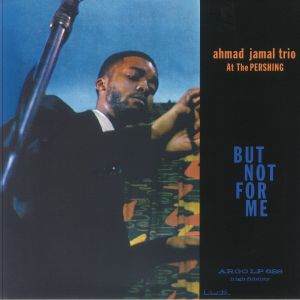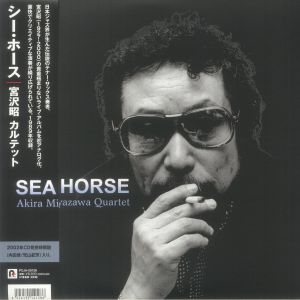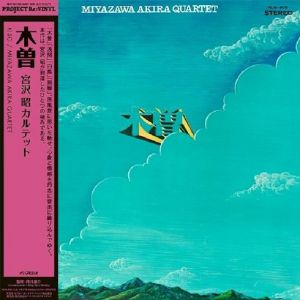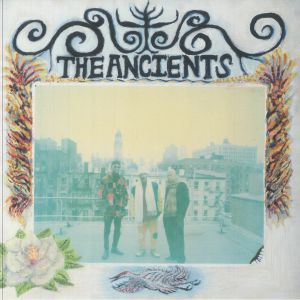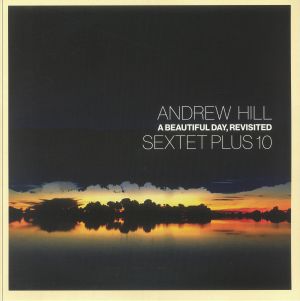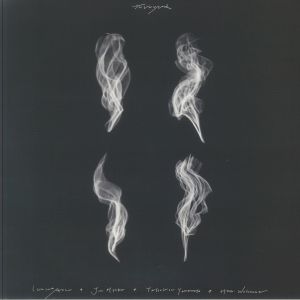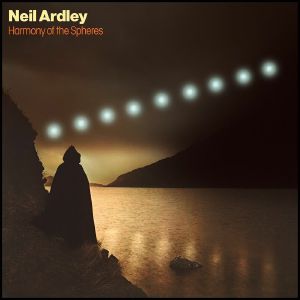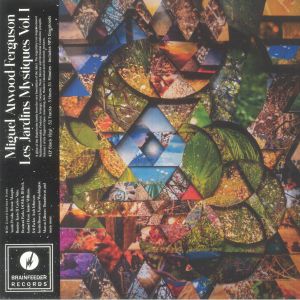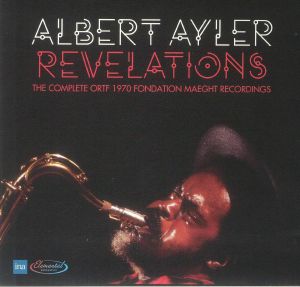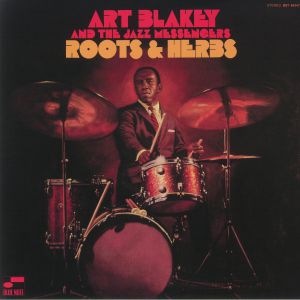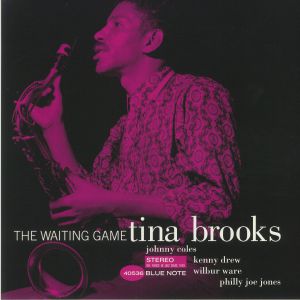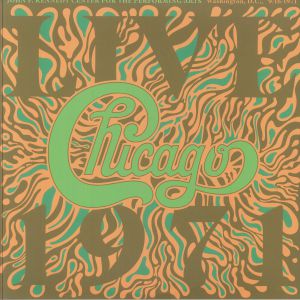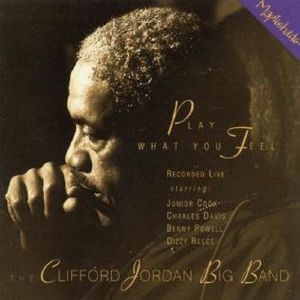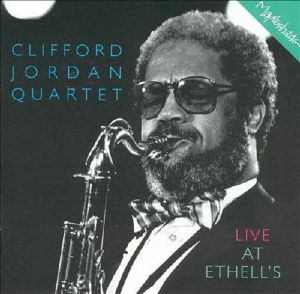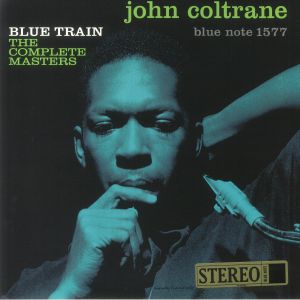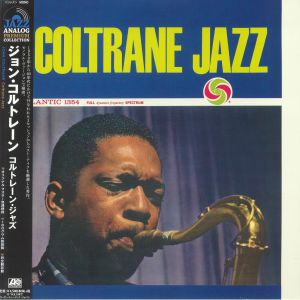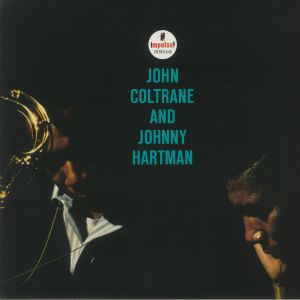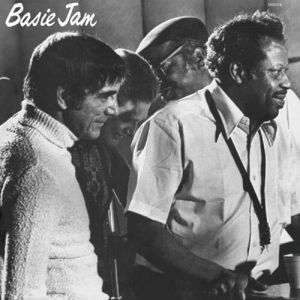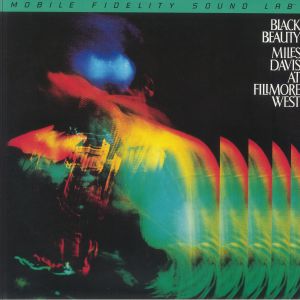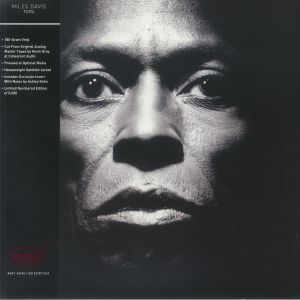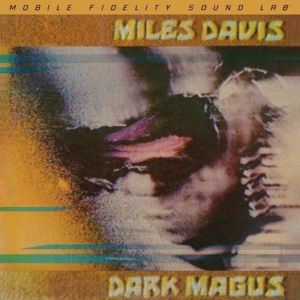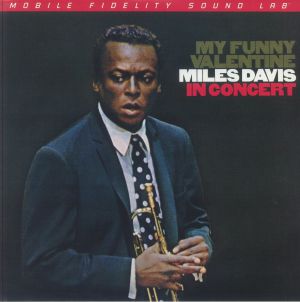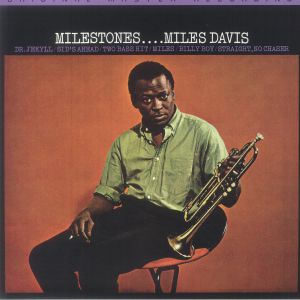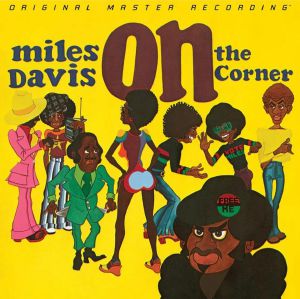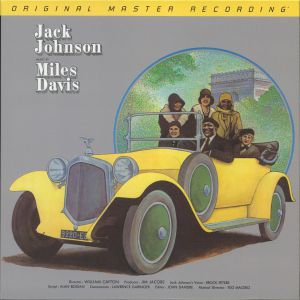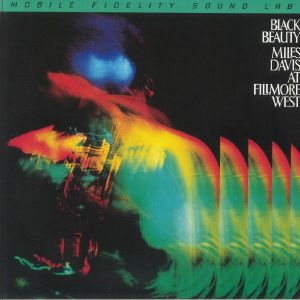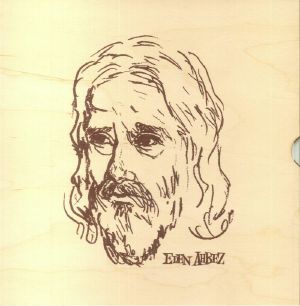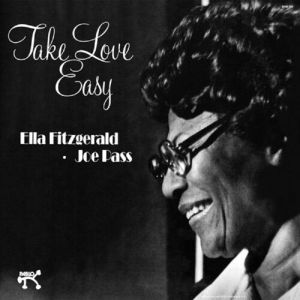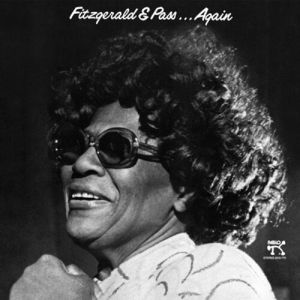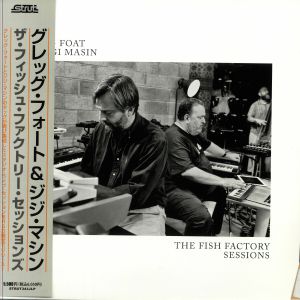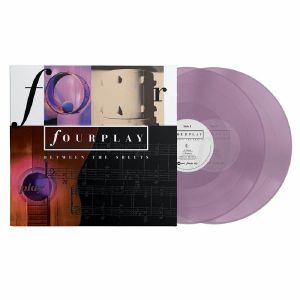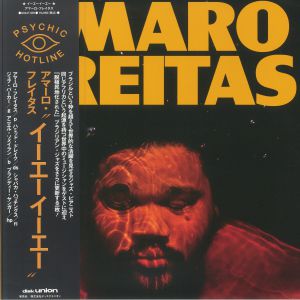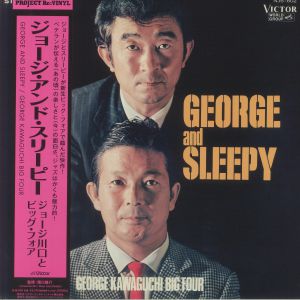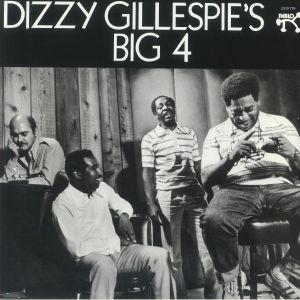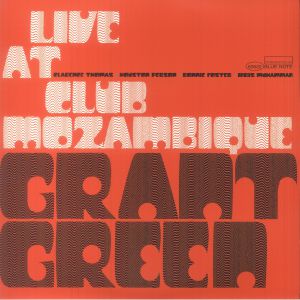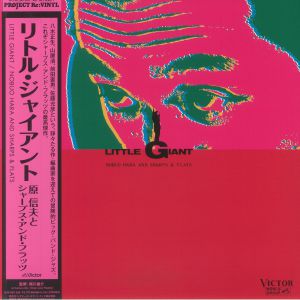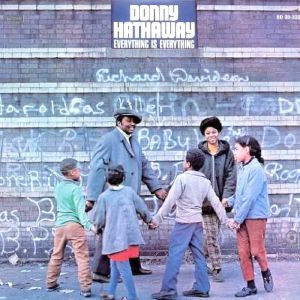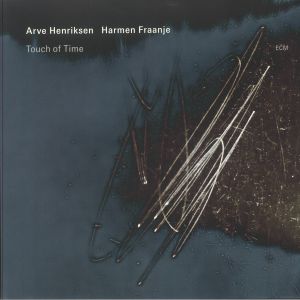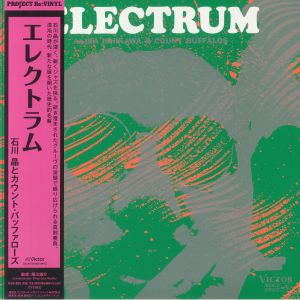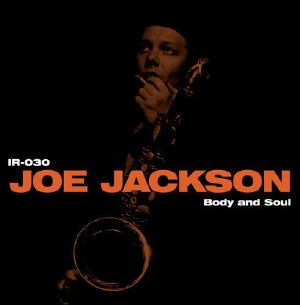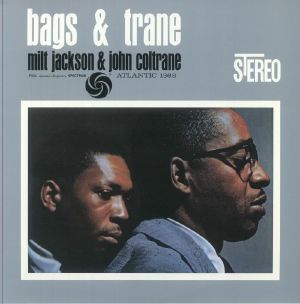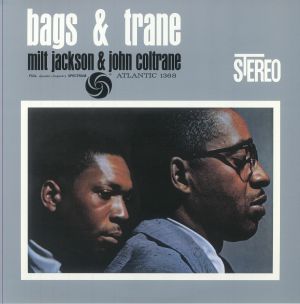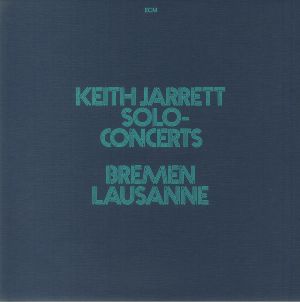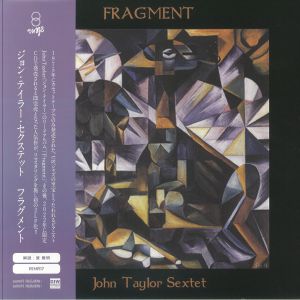Back catalogue: Jazz
Juno's full catalogue of Jazz
Alben
At The Pershing But Not For Me (reissue) (limited 180 gram audiophile vinyl LP)
Cat: AAPJ 128. Rel: 10 Dec 24
Review: This live recording by Ahmad Jamal and his trio is a timeless classic, showcasing the subtle yet captivating interplay between Jamal, bassist Israel Crosby and drummer Vernell Fournier. Known for his minimalist approach, Jamal's piano playing is marked by light, playful riffs that swing effortlessly, often making a single note resonate with more impact than a complex phrase. Fournier's drumming is a masterclass in taste and pocket, providing a rhythmic foundation that allows Jamal to glide through each tune with ease. Crosby's bass work is rock-solid, shaping both the rhythm and melodic framework of the music. The standout track is undoubtedly the vibrant rendition of 'Poinciana', where the trio's chemistry truly shines, transforming the song into a fresh, innovative experience. The album is filled with accessible yet masterfully executed jazz standards, offering a perfect introduction to Jamal's distinctive style. Despite its brevity, the performance is an immersive, joyful experience, with each track showing the trio's impeccable skill and smooth groove. While some may have initially underestimated Jamal's style, this live session proved his influence on the genre, leaving a lasting mark on jazz history.
… Read more in stock $55.52
Sea Horse (reissue) (gatefold 180 gram vinyl 2xLP with obi-strip)
Cat: PCJA 00126. Rel: 02 Nov 23
Review: Sea Horse is a live album by Japanese reed instrument master Akira Miyazawa, together with a later incarnation of his quarrelsome quartet. One of his later 80s works - recorded after his return to jazz following a hiatus in the 1970s - Sea Horse thoroughly blurs hard distinctions between 'live album' and 'studio album', as its reissuer Light In The Attic rightly notes that the listener can barely hear the presence of the audience in the recording - though it is there. A mixture of both standards and originals are heard here, and all are brought together by Miyazawa's masterful saxophone playing, not least for Duke Ellington's 'In A Sentimental Mood', or Miyazawa's own, 'Baby Sea Horse'.
… Read more in stock $67.97
Review: Akira Miyazawa's Kiso is like a sonic postcard from his childhood, drawing listeners into the landscapes that shaped him. Released in 1970 as part of Victor's Japanese Jazz series, it's all about capturing what it means to be Japanese through music. The album showcases an incredible synergy between Takeo Moriyama's dynamic drumming, Yasuo Arakawa's rich bass grooves, and Masahiko Sato's expressive piano work, all beautifully complementing Miyazawa's heartfelt saxophone. It's a stunning tribute to nostalgia and nature, making it an essential piece of cultural history.
… Read more in stock $54.37
Review: The Ancients, an intergenerational coalition of free jazz masters, deliver a powerful and evocative double LP that resonates with the spirit of improvisation and collective expression. Isaiah Collier, William Hooker, and William Parker, brought together by Parker for concerts in conjunction with the Milford Graves exhibition at the ICA Los Angeles, weave a tapestry of sound that draws upon the rich legacy of free jazz while forging their own unique path. Across two LPs of long-form improvised sets, recorded in Los Angeles and San Francisco, the trio explores the sonic terrain first charted by the likes of Cecil Taylor and Ornette Coleman, their interplay showcasing some electric, spontaneous creation. Collier's tenor saxophone soars with fiery intensity, while Hooker's drums crackle with a restless energy and Parker's bass anchors the music with a deep, resonant foundation. This is music that speaks to the heart of the human experience, a tribute to the power of improvisation to transcend boundaries and connect us to the deeper currents of life.
… Read more in stock $65.16
A Beautiful Day Revisited (gatefold 2xLP)
Cat: 753957 220228. Rel: 31 Oct 24
Review: In 2002, pianist and composer Andrew Hill's A Beautiful Day captured a landmark Birdland performance that also revealed a new facet of his own artistry. Now, A Beautiful Day, Revisited from Palmetto Records enhances this experience with a remixed and remastered edition that expands the recording's depth and detail. Producer Matt Balitsaris adds previously unreleased material, including a second, unique rendition of the title track and a lengthened version of '11/8' featuring Hill's introductions of each ensemble member. Hill's band, with improvisers like Greg Tardy, Marty Ehrlich and Ron Horton, creates a rich, expressive soundscape that balances Hill's compositional elegance with spontaneous, free-jazz momentum.
… Read more in stock $53.82
Pneuma (2xLP + insert)
Cat: PLP 8072. Rel: 03 Dec 24
Frozen Tidal
Review: Made up of Jun Miyake and Ichiko Aoba's live sessions held in Tokyo in November 2016 and the following February 2017, Pneuma consists of valuable recordings that had only been released in high-resolution format for distribution; the record is now finally released in vinyl format here on P-Vine. The first performance in January featured Tatsuhisa Yamamotoon on drums and the second in February made up a quartet formation with the addition of bassist Hitoshi Watanabe. The two ultra-talented musicians provide us a glimpse into how the music of Jun Miyake and Ichiko Aoba is made and this record breathes into their practice a new life.
… Read more in stock $50.98
Harmony Of The Spheres (hand-numbered LP + booklet)
Cat: AOR 002ST. Rel: 07 May 25
Review: Born in Kent and central to the UK's 70s jazz modernism, Neil Ardley composed with the precision of a scientist and the vision of a cosmic philosopher. This long-overdue reissue from Analogue October captures a project that translates planetary orbits into a nine-note harmonic systemitoo vast for acoustic instruments, brought to life instead through early synthesisers. 'Arcturus' and 'Spiral Nebula' interlace fluid sax work from Barbara Thompson with John Martyn's signature reverb-drenched guitar, while Geoff Castle's synths evoke deep-space drift. 'Rainbow Four' channels modal funk, and 'Neptune' floats into ambient abstraction. Produced at Morgan Studios with a full ensemble of jazz heavyweightsiTony Coe, Ian Carr, Billy Kristian, Richard Burgess, and Trevor Tomkinsithis is a record that swings between science fiction and symphonic elegance. For all its high concept, it remains rooted in groove and human touch. A meticulous AAA cut from the Decca master tapes seals the experience: a bold and beautiful reminder of how far British jazz once dared to travel.
… Read moreGespielt von: Juno Recommends Jazz
in stock $50.42
Les Jardins Mystiques Vol 1 (limited gatefold 4xLP + MP3 download code with obi-strip)
Cat: BF 134. Rel: 09 Nov 23
Review: Some 14 years in the making, Les Jardins Mystiques Vol.1 comprises 52 tracks of music composed, arranged and produced by Miguel Atwood-Ferguson; with contributions from 50+ friends including Kamasi Washington, Thundercat, Carlos NiNo, Austin Peralta, Bennie Maupin, Gabe Noel, Jamael Dean, and more. If that wasn't monumental enough, just know that this lengthy classical-experimental-jazz album is certainly Miguel's intended magnum opus, having been written and recorded entirely as a result of his own uncompromised, self-funded efforts. Such an extensive time period reflects an album of longstanding personal growth for the artist; an attitude of continual evolution and innocence, of constantly coming of age and reinventing oneself.
… Read more in stock $60.62
Revelations: The Complete ORTF 1970 Fondation Maeght Recordings (4xCD box set + booklet)
Cat: 599044 3. Rel: 12 May 22
Review: Albert Ayler was a trailblazing avant-garde saxophonist lost far too soon, and not long before his death he performed an iconic pair of performances at Fondation Maeght in Saint Paul de Vence outside Nice. While excerpts from the performances have been previously released, this is the first time they appear in their entirety, alongside each other as a testament to a truly powerful force in jazz. This four-CD edition comes with an extensive 100-page booklet loaded with essays and quotes from authorities and contemporary music luminaries of all sorts, making it a standout document for all serious jazz lovers to cherish.
… Read moreGespielt von: Juno Recommends Jazz
in stock $62.32
Roots & Herbs (Tone Poet Series) (gatefold 180 gram audiophile vinyl LP)
Cat: 884052. Rel: 04 Dec 20
Review: Art Blakey's greatest album with the Jazz Messengers is this one, Roots & Herbs, and it is probably one of his least well known. The 1961 line up of this famous jazz collective had the esteemed Lee Morgan on trumpet, with Jymie Merritt on bass, Wayne Shorter on tenor saxophone and piano played by Bobby Timmons. It was of course laid down in the most famous studio of them all, Rudy Van Gelder's studio in New Jersey, and take sin six hard bp jams, the playful title track, and the superbly inventive 'United.' Get to know.
… Read moreGespielt von: Mukatsuku Records Chart
in stock $52.40
The Waiting Game (Tone Poet Series) (reissue) (gatefold 180 gram audiophile vinyl LP)
Cat: 893419. Rel: 29 Jan 21
Review: Tina Brooks' final album was one of his most underrated. The tenor saxophonist really brought the goodness on The Waiting Game, which she record din 1961 but did not put out until 1999. The undervalued player might have played a big part in the hard bop era but only one of his Blue Note sessions ever made it out. Here he is joined by Johnny Coles on trumpet, Kenny Drew on piano, Wilbur Ware on bass, and Philly Joe Jones on drums, and wrote five of the six tunes himself. It's a soulful sound with highlights like modal masterpieces 'Dhyana' and 'David the King.'
… Read moreGespielt von: Juno Recommends Jazz
in stock $52.97
Historic Music Past Tense Future (gatefold 2xLP + insert in spot-varnished sleeve)
Cat: BEDI 1A. Rel: 07 Mar 22
Review: This trio performance from saxophonist Peter Brotzmann, drummer Milford Graves and double bassist William Parker now gets a look back via Black Editions, and captures a moment in time when greater synergy between jazz musicians might have been possible. Broadcast from the front room of CBGBs in 2002, this is the first ever recording of the band playing together, mainly cementing Graves' chops and standing as an immensely great drummer and worthy of his place in the percussive hall of fame. Graves lives up - our through - to his Thurston Moore-dubbed "living myth" status, with each musician feeding off each other in an impossibly timeless, rare, and sleek New York jass standoff.
… Read more in stock $56.09
At The John F Kennedy Center For The Performing Arts Washington DC 9 16 71 (limited gatefold 180 gram vinyl 4xLP)
Cat: 060349 7835287. Rel: 26 Sep 24
Review: This comprehensive special edition of this classic album comes across eight sides of vinyl and captures the iconic band at the peak of their early career. Performing in the nation's capital, Chicago delivered a wonderfully dynamic set that showcases their unique fusion of rock, jazz, and brass. It features plenty of great work from the band's well known and distinctive horn section and intricate arrangements. A magnificently captured live recording, it features hits from their early albums such as Chicago Transit Authority and Chicago II, and also takes in fan favourites like 'A Song For Richard & His Friends' and 'Beginnings.' The performance is a testament to Chicago's musical versatility and powerful live presence and this version of it takes you right back to the heart of it all.
… Read more in stock $87.81
Review: Chicago's Live at 55 sees the legendary band celebrating over five decades of music with a performance full of energy and nostalgia. Featuring a mix of classic hits and deeper cuts, the set is a celebration of their enduring legacy. The performance builds with brass-heavy anthems like '25 or 6 to 4' and the smooth 'If You Leave Me Now', proving their ability to mix rock, jazz, and pop seamlessly. With guest appearances adding a fresh layer to the familiar sound, the album captures the essence of Chicago's rich musical history, while continuing to demonstrate their dynamic stage presence.
… Read more in stock $50.98
Play What You Feel (reissue) (2xLP + insert with obi-strip)
Cat: PLP 7560/1. Rel: 23 May 25
Review: Clifford Jordan's dynamic live set At Condon's was originally recorded in 1990 and is now reissued on vinyl for the first time. The tenor saxophonist's deep, bluesy tone shines through in this 16-piece big band setting and it has been captured by Maple Shade Records' audiophile-grade production. The session features standout performances from jazz luminaries like Dizzy Reece, Benny Powell and Junior Cook with classics like Ellington's 'Don't Get Around Much Anymore,' Gillespie's 'I Waited for You' and Jordan's 'Third Avenue' all adding up to an album that is a thrilling document of late-era brilliance. Jordan was truly spiritual jazz innovator and one of the most expressive saxophonists of his time.
… Read moreGespielt von: Juno Recommends Jazz
in stock $51.56
Live At Ethell's (reissue) (2xLP + insert with obi-strip)
Cat: PLP 7548/9. Rel: 22 Apr 25
Review: American saxophone player and composer Clifford Jordan's 1990s Maple Shade Records albums are well thought of for their high-quality ideas. This release features a 1987 live quartet performance from a Baltimore jazz club in which Jordan delivers a mature, lyrical and swinging set encompassing standards like 'Round Midnight' and 'Don't Get Around Much Anymore' alongside his original compositions. The recording was meticulously captured with minimal microphones and high-quality cables so it achieves remarkable realism while blurring the line between live performance and studio recording. This is a definitive glimpse into Jordan's artistry at the height of his career.
… Read more in stock $51.56
Blue Train: The Complete Masters (Tone Poet Series) (gatefold 180 gram audiophile vinyl 2xLP + booklet)
Cat: 454810 7. Rel: 16 Sep 22
Review: There are few jazz albums as universally adored and significant as Blue Train. That's no exaggerated remark - it's a record imprinted on 20th Century culture, albeit just one of Coltrane's many incredible works. As part of their continued Tone Poets series, Blue Note are revisiting this landmark and giving it a grand presentation under the banner of The Complete Masters. That means, as well as the official recordings that make up Blue Train, we're also treated to a second disc of additional takes which give you a whole new perspective on these eternal treasures, from a false start of 'Blue Train' to multiple takes on 'Moment's Notice' and 'Lazy Bird'.
… Read moreGespielt von: Juno Recommends Jazz
in stock $54.96
Coltrane Jazz (heavyweight vinyl LP with obi-strip)
Cat: WPJR 10049. Rel: 13 Jun 24
Review: John Coltrane's evolving artistry was one of there reasons he remains a jazz icon. His 1961 album Coltrane Jazz saw him transition into his more exploratory phase next to a stellar lineup of musicians like McCoy Tyner on piano, Steve Davis on bass, and Elvin Jones on drums. The album blends hard bop with Coltrane's emerging modal influences. Tracks like 'Little Old Lady' and 'Village Blues' highlight his lyrical saxophone playing and innovative improvisation techniques. The album balances complex compositions with soulful melodies, making it a pivotal record in Coltrane's discography that not only captures a moment of transformation for the artist but also cements his status as a jazz luminary.
… Read more in stock $69.68
John Coltrane & Johnny Hartman (Acoustic Sounds Series) (gatefold 180 gram vinyl LP)
Cat: 380895 3. Rel: 06 May 22
Review: In the reams of great John Coltrane recordings, this album surely stands of one of the true gems. Originally released in 1963, this collaboration with legendary baritone singer Johnny Hartman captures Coltrane at his mellow best. Alongside the headliners, the line-up on this album also features McCoy Turner on piano, Elvin Jones on drums and Jimmy Garrison on bass, and the result is an understated, sumptuous listen to lose yourself in. Sentimental and melancholic in all the best ways, this is sensitive musicianship at its finest.
… Read more in stock $51.56
Basie Jam (reissue) (limited gatefold heavyweight vinyl LP + booklet)
Cat: AGUE 1551. Rel: 09 Aug 24
Review: Basie Jam is a stellar showcase of Count Basie's enduring prowess in jazz. This 1975 release by Pablo Records, produced by Norman Granz, features an impressive lineup including J.J. Johnson on trombone, Zoot Sims on tenor sax, and Ray Brown on bass. The album exudes a vibrant swing style, with meticulous sound reproduction that places it among the finest recordings of its era. The mix captures a lifelike presence, with instruments positioned distinctly on the soundstage. The gentle taps of Louie Bellson's cymbals, Irving Ashby's warm guitar tones, and the palpable breath in brass instruments add a marvelous sense of realism. Now, reissued for future generations to enjoy and discover once again. This legendary performer is perfectly captured by this recording.
… Read more in stock $54.96
Black Beauty: Miles Davis At Fillmore West (limited numbered gatefold 180 gram audiophile vinyl 2xLP + booklet)
Cat: MFSL 2568. Rel: 04 Apr 25
Review: April 10, 1970. Miles Davis, fresh from his Jack Johnson sessions and with a new face in the band, soprano saxophonist Steve Grossman, take the stage at San Francisco's Fillmore West and set about sparking a revolution in jazz by fusing it with rock and funk elements. Captured on Black Beauty: Miles Davis at Fillmore West, this performance is one for the agesifull of explosive improvisation, raw energy and a palpable sense of transformation. The album, finally reissued on vinyl after years of being locked away in Japan, is a time capsule of a moment in jazz history where tradition was discarded and a new frontier was being built. With his usual crewiGrossman, Chick Corea on keys, Dave Holland on bass, Jack DeJohnette on drums, and Airto Moreira on percussioniDavis steered the ship into turbulent, unpredictable waters. It's all about the groove, the shifts in rhythm, and the untamed trumpet blasts that echo through the room like firecrackers. Tracks like 'Miles Runs the Voodoo Down' - from the milestone Bitches Brew album, which had come out a mere month before - and 'It's About That Time' tear apart the old jazz playbook, plunging deep into rock territory while still holding on to the open-ended freedom of improvisation. This is the raw, unfiltered jazz that would come to define the electric period of Davis' caree - a live-wire snapshot of a jazz legend finding new possibilities in real-time.
… Read more in stock $72.24
Tutu (reissue) (limited gatefold 180 gram vinyl LP + insert with obi-strip (indie exclusive))
Cat: 081227 817367. Rel: 10 Jul 24
Review: Rhino's new premium vinyl series promises the pinnacle of sound and packaging for classic albums. Mastered by Kevin Gray and pressed by Optimal on 180-gram vinyl, these limited-edition releases feature high-quality covers and "tip-on" jackets. The series aims to deliver consistent sonic excellence, setting a new standard for reissues. Miles Davis' Tutu (1986): Often dismissed as 'pop-fusion', Tutu defied expectations and remains relevant. Produced by Marcus Miller, it features a tapestry of electronics, including bass guitar, bass clarinet, electric violin, percussion, and synths. The album reflects the 80s with its bright tonalities and a crisp sound akin to the Fairlight era. Davis' brooding brass blends with Miller's harmonically rich backdrops, reminiscent of black popular music of the time. The result is a work of engrossingly fraught atmospheres, proving Davis' enduring relevance and ability to captivate without sounding dated.
… Read moreGespielt von: Juno Recommends Jazz
in stock $54.37
Dark Magus: Live At Carnegie Hall 1974 (limited gatefold numbered 180 gram audiophile vinyl 2xLP)
Cat: 198028 170314. Rel: 25 Feb 25
Review: Captured live in 1974, this performance at Carnegie Hall showcases Miles Davis at the height of his electric fusion era, blending jazz with rock in a fierce, exploratory manner. The show features the monumental 'Moja' and 'Wili,' each spread across two parts, with the band improvising freely and building intricate, pulsating rhythms. Davis's trumpet and organ create a swirling, unpredictable sound, while the guitar work from Pete Cosey and Reggie Lucas adds texture and energy. Tracks like 'Tatu' and 'Nne' display Davis's shift towards African-inspired sounds, experimenting with complex rhythms and haunting melodies. This is a tour de force, an unfiltered snapshot of Davis's creative genius.
… Read more in stock $79.31
My Funny Valentine: In Concert (reissue) (limited numbered 180 gram audiophile SuperVinyl LP)
Cat: MFSV 1520. Rel: 03 Mar 25
Review: As it is the month of love - or another overbearingly capitalist instruction to treat people for the sake of it, depending on your viewpoint - why no indulge in some loved up jazz from Miles Davis? My Funny Valentine captured delicate ballads and was met with immediate critical successes. It is an album that demonstrated profound emotion with minimal fuss and represents a high point in Miles Davis' early 1960s career, capturing the excitement and sound of a road-honed group at its peak. Herbie Hancock's piano intros, George Coleman's melodic tenor, Ron Carter's steady bass, and Tony Williams' unexpected drumming contributed to an unforgettable collective sound.
… Read more in stock $81.01
Seven Steps To Heaven (Special Edition) (limited numbered 180 gram audiophile vinyl LP)
Cat: MFSV 1534. Rel: 21 Nov 23
Review: Miles Davis's Seven Steps to Heaven album came in 1963 and was recorded in two different studios at a vital time in his career. It was the first new work in a year (back then he had released thick and fast since debuting in 1950) and can be rightly thought to be the first time his second great quintet really came together and showed their mettle. The album got two Grammy nominations and is also noted for being the last time Davis mixed up standards with original works. It's one of his most expressive and well-played oeuvres. This special edition reissue has been remastered from the original analogue master tapes so sounds of the highest quality and is backed with detail, tone and definition.
… Read more in stock $80.74
Milestones (limited numbered 180 gram SuperVinyl LP)
Cat: 196588 233517. Rel: 28 Dec 23
Review: Milestones is the full-pun-intended landmark 1958 album by the legendary jazz trumpeter Miles Davis, which marked his transition from hard bop to modal jazz. Featuring classics like 'Milestones', 'Straight, No Chaser' and 'Two Bass Hit', it was notable as one of Davis' earliest experimentations in public with modal scale patterns that was available commercially. Marking a great milestone since its original release in mono, it now comes pressed on numbered 180 gram SuperVinyl - which is a new ultra-quiet vinyl formulation which enhances the sound quality and durability of original recordings - as well as with a deluxe gatefold jacket and a booklet with rare photos and liner notes.
… Read more in stock $83.57
On The Corner (remastered) (limited numbered gatefold 180 gram audiophile SuperVinyl LP)
Cat: 194399 826416. Rel: 10 Sep 24
Review: Miles Davis' On the Corner was released in 1972 and was initially dismissed by jazz purists for its unconventional style but over time its visionary approach has been rightfully given the respect it deserves. Davis' boldest and most controversial album in a discography full of them, On the Corner shifted jazz's focus to groove and bass-heavy funk and reshaped the genre and pioneering techniques that anticipated remix culture and electronica by over a decade. This special pressing, sourced from the original master tapes and pressed on MoFi SuperVinyl, enhances the record's deep basslines and intricate studio techniques to offer a vivid and immersive listening experience that underscores its groundbreaking influence.
… Read more in stock $79.31
Jack Johnson (reissue) (limited numbered gatefold 180 gram SuperVinyl LP)
Cat: MFSV 1516. Rel: 10 Jun 24
Review: Miles Davis' A Tribute to Jack Johnson stands as a pinnacle of jazz-rock fusion, blending slashing rock and aggressive funk with an astounding lineup. Mastered from the original tapes, Mobile Fidelity's reissue captures the music's aggression and immediacy like never before. Guitarist John McLaughlin delivers a nasty edge and vicious streak, bridging the gap between rock and jazz with his slashing style. Davis' trumpet solos sizzle with exuberance, surrounded by urgent backbeats and knifing riffs. An amazing degree of instrumental separation and imaging allow you to focus on singular musicians and the roles they play. The album, often overshadowed by Davis' other works, serves as a personal manifesto, saluting boxing legend Jack Johnson. Producer Ted Macero seamlessly assembles sessions, resulting in a lean, guitar-heavy sound that hits with brutal force and graceful elegance. A Tribute to Jack Johnson remains a monster album, demanding to be experienced in all its ferocious glory.
… Read more in stock $84.14
Black Beauty: Miles Davis At Fillmore West (B-STOCK) (limited numbered gatefold 180 gram audiophile vinyl 2xLP + booklet)
Cat: MFSL 2568 (B-STOCK). Rel: 01 Jan 90
B-STOCK: Slight surface mark on the record sleeve
Review: ***B-STOCK: Slight surface mark on the record sleeve***
April 10, 1970. Miles Davis, fresh from his Jack Johnson sessions and with a new face in the band, soprano saxophonist Steve Grossman, take the stage at San Francisco's Fillmore West and set about sparking a revolution in jazz by fusing it with rock and funk elements. Captured on Black Beauty: Miles Davis at Fillmore West, this performance is one for the agesifull of explosive improvisation, raw energy and a palpable sense of transformation. The album, finally reissued on vinyl after years of being locked away in Japan, is a time capsule of a moment in jazz history where tradition was discarded and a new frontier was being built. With his usual crewiGrossman, Chick Corea on keys, Dave Holland on bass, Jack DeJohnette on drums, and Airto Moreira on percussioniDavis steered the ship into turbulent, unpredictable waters. It's all about the groove, the shifts in rhythm, and the untamed trumpet blasts that echo through the room like firecrackers. Tracks like 'Miles Runs the Voodoo Down' - from the milestone Bitches Brew album, which had come out a mere month before - and 'It's About That Time' tear apart the old jazz playbook, plunging deep into rock territory while still holding on to the open-ended freedom of improvisation. This is the raw, unfiltered jazz that would come to define the electric period of Davis' caree - a live-wire snapshot of a jazz legend finding new possibilities in real-time.
… Read moreApril 10, 1970. Miles Davis, fresh from his Jack Johnson sessions and with a new face in the band, soprano saxophonist Steve Grossman, take the stage at San Francisco's Fillmore West and set about sparking a revolution in jazz by fusing it with rock and funk elements. Captured on Black Beauty: Miles Davis at Fillmore West, this performance is one for the agesifull of explosive improvisation, raw energy and a palpable sense of transformation. The album, finally reissued on vinyl after years of being locked away in Japan, is a time capsule of a moment in jazz history where tradition was discarded and a new frontier was being built. With his usual crewiGrossman, Chick Corea on keys, Dave Holland on bass, Jack DeJohnette on drums, and Airto Moreira on percussioniDavis steered the ship into turbulent, unpredictable waters. It's all about the groove, the shifts in rhythm, and the untamed trumpet blasts that echo through the room like firecrackers. Tracks like 'Miles Runs the Voodoo Down' - from the milestone Bitches Brew album, which had come out a mere month before - and 'It's About That Time' tear apart the old jazz playbook, plunging deep into rock territory while still holding on to the open-ended freedom of improvisation. This is the raw, unfiltered jazz that would come to define the electric period of Davis' caree - a live-wire snapshot of a jazz legend finding new possibilities in real-time.
in stock $79.31
Matador (remastered) (limited numbered 180 gram vinyl LP)
Cat: IMXLP 6042. Rel: 31 Mar 22
Review: Matador is something of a forgotten masterpiece that gets a deserving deluxe treatment here with an all-analogue reissue on nice and heavy 180 gram vinyl. Released back in 1963 by passionate jazz players, trumpeter Kenny Dorham and alto talent Jackie McLean, the energetic album also features spirited performances from Bobby Timmons on piano, and the locked-in rhythm section of Teddy Smith on bass and J.C. Moses on drums. There is frenetic interplay between all, with loose and swinging keys and real spontaneity resulting in hugely expressive and energetic sounds. Remarkably, the whole album was recorded in just one day in 1962 and brims with rawness and realness.
… Read more in stock $65.44
Eden's Island: The Music Of An Enchanted Isle (reissue) (B-STOCK) (gatefold splattered vinyl 2xLP + booklet in wooden box)
Cat: EPS 010WOOD. Rel: 01 Jan 90
B-STOCK: Small sticker mark on wooden box, inner sleeves of the records are torn; otherwise in perfect working order
Review: ***B-STOCK: Small sticker mark on wooden box, inner sleeves of the records are torn; otherwise in perfect working order***
Eden Ahbez was a the prototypical hippie in California, writing songs and recording through the 40s to the 60s and penning Nat King Cole's hit single 'Nature Boy' amongst others. This album, his definitive 1960 opus, is a unique curio which touches on jazz, spirituality and much more besides, but ultimately sounds utterly unique, much like Ahbez himself was. There's a romantic lilt to his playing, a little sadness but also much innocence and joy in these songs. If they don't stir up the inner nature child in you, you must have a heart of concrete. Alongside the standard Epsilon reissue of the album is this stunning, wood-cover edition which gives the album a special kind of prominence, not to mention tapping into the earthly magic of Ahbez's music.
… Read moreEden Ahbez was a the prototypical hippie in California, writing songs and recording through the 40s to the 60s and penning Nat King Cole's hit single 'Nature Boy' amongst others. This album, his definitive 1960 opus, is a unique curio which touches on jazz, spirituality and much more besides, but ultimately sounds utterly unique, much like Ahbez himself was. There's a romantic lilt to his playing, a little sadness but also much innocence and joy in these songs. If they don't stir up the inner nature child in you, you must have a heart of concrete. Alongside the standard Epsilon reissue of the album is this stunning, wood-cover edition which gives the album a special kind of prominence, not to mention tapping into the earthly magic of Ahbez's music.
in stock $67.29
Remember Me (gatefold 180 gram vinyl 2xLP)
Cat: GRON 14001. Rel: 04 Apr 24
Review: Soul vocalist and covers extraordinaire Vanessa Fernandez - in other worlds known as Vandetta - throws a curveball with Remember Me, seguing through a fabulous mix of R&B classics, including 'That's the Way of the World' (Earth Wind & Fire), 'Lovely Day' (Bill Withers), 'You're the One I Love' (Barry White), 'Kiss' (Prince), not to mention a smattering of contemporary pop and soul numbers numbers such as Lenny Kravitz's 'I Belong To You', Tom Misch's 'It Runs Through Me', and Portishead's 'Roads'. Proving a wide-ranging knowledge of soul music that is difficult to match (the genre is often subject to staid interpretations, remaining too fixed to certain traditions or places), Fernandez takes on an all-embracing approach to her chosen sound and in doing so enlists a diverse cast of instrumentalists to help her along the way: Tim Pierce (guitars), Alex Al (bass), Victor Indrizzo (drums), Jeff Babko (keyboards), Felipe Menolio (acoustic guitars), and Luis Conte (percussion).
… Read more in stock $77.34
Take Love Easy (reissue) (limited 180 gram vinyl LP)
Cat: AGUE 159.1. Rel: 29 Jan 25
Review: Ella Fitzgerald will forever be a legend in the jazz world thanks to her unparalleled vocal talents and ability to infuse jazz with deep emotion. Released in 1962 and reissued here, Take Love Easy pairs Fitzgerald with the exceptional pianist Bill Evans and together they make for a sophisticated and intimate atmosphere. Featuring a selection of lush ballads and smooth, understated jazz standards, this record highlights Fitzgerald's delicate phrasing and expressive delivery with songs like 'Don't Be That Way' and 'Gee Baby, Ain't I Good To You'.
… Read more in stock $58.92
Fitzgerald & Pass Again (reissue) (limited 180 gram vinyl LP)
Cat: APJ 160. Rel: 17 Sep 24
Review: Ella Fitzgerald, the First Lady of Song, and legendary jazz guitarist Joe Pass reunited for their second duet album, Fitzgerald & Pass... Again, originally released in 1976. This collaboration has become a jazz classic, with Fitzgerald winning the 1977 Grammy Award for Best Jazz Vocal Album for her performance. Fitzgerald's impeccable musicianship shines through, showcasing her unparalleled ability to convey the essence of a lyric. Pass complements her perfectly, displaying his virtuosity and strength as an accompanist. The album features four Duke Ellington classics, reimagined versions of 'Tis Autumn' and 'Tennessee Waltz,' and mesmerising wordless performances of 'Rain' and ''One Note Samba.' This 180-gram reissue by Analogue Productions, cut from existing metal parts mastered by Doug Sax from the original analog master tape and pressed at Quality Record Pressings, ensures optimal sound quality. The album is housed in a single pocket Stoughton Printing tip-on jacket.
… Read moreGespielt von: Juno Recommends Jazz
in stock $54.96
The Fish Factory Sessions (limited translucent sky blue vinyl LP in spot-varnished sleeve with obi-strip)
Cat: STRUT 343JLP. Rel: 08 May 24
Review: The Fish Factory Sessions is a captivating live studio recording from the dynamic pairing of Greg Foat and Gig Masin. It features two brand-new compositions and two reimagined versions of tracks from their previous album, Dolphin. It was recorded at the namesake Fish Factory Studios in London with Moses Boyd on drums and Tom Herbert on bass. The four pieces are lavish and expansive with free-flowing sax melodies and tingling keys that bring to mind sun reflecting off glistering Mediterranean waters. It's happy, sombre, and beautiful, often all at once.
… Read more in stock $50.70
Between The Sheets (remastered) (limited numbered gatefold purple vinyl 2xLP + insert)
Cat: EVLP 039TP. Rel: 15 Aug 24
Review: Between The Sheets gets a special 30th Anniversary remaster here. The celebrated 1993 album by smooth jazz group Fourplay, featuring Bob James on piano, Lee Ritenour on guitar, Nathan East on bass and vocals, and Harvey Mason on drums) is a hallmark of smooth jazz greatness that earned gold certification and charted at No. 2 on Billboard's Top Jazz Albums and No. 15 on Top R&B Albums. Known for tracks like the Isley Brothers' remake 'Between The Sheets' with Chaka Khan, and the lively 'Amoroso,' it also includes Bob James' elegant 'Chant.' This anniversary edition comes on 180g double vinyl, remastered from original tapes, with a gatefold sleeve and new liner notes by Charles Waring.
… Read more in stock $58.07
Review: Amaro Freitas, hails from Recife, Brazil, and is propelled through life through by searching out different experiences. Venturing to Manaus in the Amazon basin in 2020 before starting work on this album, pianist Freitas immersed himself in a transformative journey that influenced his musical creation profoundly. Collaborating with the Satere Mawe indigenous community, his album Y'Y pays homage to nature and ancestral wisdom. Through tracks like 'Mapinguari (Encantado da Mata)' and 'Uiara (Encantada da Agua) - Life and Cure,' Freitas weaves tales of powerful spirits and mystical encounters. Incorporating elements from Afro-Brazilian and Indigenous cultures, the record is a significant exploration of connection, tradition, and the incandescent power of enchanted spirits.
… Read more in stock $53.82
George & Sleepy (gatefold LP with obi-strip)
Cat: NJS 802. Rel: 26 Nov 24
Review: The 1950s marked the rise of Japan's modern jazz scene, with the Big Four, helmed by George Kawaguchi, playing a pivotal role. Over the years, the ensemble saw shifts in its lineup but maintained its influence on Japanese jazz. Originally released in 1969 as part of Victor's Japanese Jazz series, George & Sleepy captures both the essence and evolution of this revered group. While tracks like 'Lover' and 'Charade' reflect a sense of nostalgia, echoing the Big Four's golden era, the album is anything but a mere look back. Pieces like 'Tuesday Samba' offer a polished, contemporary groove, while the rhythm-forward 'Vietnam' adds an intriguing exotic flair. The balance between timeless jazz sensibilities and forward-thinking arrangements gives this record.
… Read more in stock $52.69
Dizzy Gillespie's Big 4 (reissue) (limited heavyweight vinyl LP + booklet)
Cat: AGUE 1581. Rel: 09 Aug 24
Review: In January 1945, trumpeter Dizzy Gillespie laid down 'Be Bop (Dizzy's Fingers)' in New York City, a month prior to pioneering the first modern jazz recordings, 'Groovin' High' and 'Blue N' Boogie.' This era marked a transition from big bands to smaller combos, fostering a more intimate musical landscape. Gillespie's late-career exploration, showcased here in Norman Granz's Pablo releases, features a quartet anchored by guitarist Joe Pass, bassist Ray Brown and drummer Mickey Roker. Their rendition of bop classics exhibit Gillespie's enduring brilliance. Supplementing the originals are alternate takes of some other standards from their arsenal all of which reveal Gillespie's improvisational prowess and arranging ingenuity.
… Read more in stock $58.92
Live At Club Mozambique (remastered) (mono) (limited gatefold green vinyl 2xLP (indie exclusive))
Cat: 810074423236. Rel: 06 Dec 23
Review: Grant Green's Live at Club Mozambique is getting a first ever and long overdue issue on vinyl courtesy of a new partnership between Third Man Records and Blue Note Records called the 313 Series Partnership in recognition of the fact it will focus on seminal jazz talents from Detroit, whose zip code is 313. The record was recorded live on January 6th and 7th, 1971 at Club Mozambique and showcases Green's extensive foundatiosn in r&b. When added to his next level mastery of bebop and a style that always favoured expressiveness over technical expertise and you have an enthralling listen.
… Read moreGespielt von: Craig Charles Funk And Soul
in stock $82.71
Little Giant (gatefold LP with obi-strip)
Cat: NJS 803. Rel: 26 Nov 24
Review: Sharps and Flats, under the direction of Nobuo Hara, has significantly influenced Japan's big band jazz landscape. Their album Little Giant, originally released in 1970 as part of Victor's Japanese Jazz series, remains a key highlight in their extensive catalog. This release features the talents of notable composers and arrangers, including Masao Yagi, Kiyoshi Yamaya, Norio Maeda, and Masahiko Sato, alongside innovative arrangements of works by Oliver Nelson, a close collaborator. The albums intricate and bold arrangements reveal the band's exceptional performance caliber. The track 'Little Giant' radiates coolness, while 'Dark Horse' exudes strength. 'Orbit 8:11' introduces an edgy sound, and 'Flexibility' displays refined sophistication. The musicians deliver a compelling interplay of energy and calm, reflecting the band's versatility. Now reissued on vinyl, this work captures the distinctive charm and skill of Sharps and Flats, presenting an exciting experience for listeners. It's a vibrant representation of adventurous big band jazz that continues to resonate.
… Read more in stock $51.85
Everything Is Everything (gatefold 180 gram audiophile vinyl 2xLP)
Cat: AAPA 05245. Rel: 23 Apr 25
Review: Upon its release in 1970, Donny Hathaway's latest album was met with critical acclaim but modest commercial success. The LP showcased Hathaway's extraordinary versatility, blending gospel, jazz, blues and soul into a cohesive whole. It was a rich tapestry of influences, marked by Hathaway's stunning vocal prowess and his ability to craft arrangements that felt both intricate and organic. The album also set the stage for his subsequent works, cementing Hathaway as one of the most important voices of his generation. Tracks like 'The Ghetto' and 'Tryin' Times' revealed his commitment to addressing social issues, while songs like 'Thank You Master' and 'Je Vous Aime' showcased his personal and spiritual depth. In the decades since its release, Everything Is Everything has grown in stature, celebrated as a cornerstone of soul music.
… Read moreGespielt von: Juno Recommends Soul
in stock $67.70
Review: Norwegian trumpeter Arve Henriksen and Dutch pianist Harmen Fraanje strike a fine balance on their latest collaborative jazz record Touch Of Time. Warm and tender throughout, this is a back-alleyed melanchole, with its stark counterpoints between piano and trumpet somehow eliciting the audio-sensation of more instrumentation than there is - a gestalt of ghosts. Gradients of emotion wax and wane like the strange blue lights that are often visible when one's eyes are closed. Produced by Manfred Eicher at the Auditorio Stelio Molo in Lugano, this is fine recording indeed.
… Read more in stock $58.86
Electrum (reissue) (gatefold orange vinyl LP with obi-strip)
Cat: NJS 800. Rel: 28 Oct 24
Review: In 1970, Akira Ishikawa, a key figure in the jazz rock movement, ventured into bold new territory with his album Electrum. This ambitious project shows his innovative spirit, pushing jazz boundaries with its intense, precise grooves and the musicians' quest for new heights. The album features standout tracks like the tempestuous 'Electrum,' the complexly layered 'Revulsion,' and the tranquil 'Speak Under My Breath,' which captures the serene clarity of dawn. The presence of distinguished pianists and arrangers Masahiko Sato and Hiromasa Suzuki adds further depth and brilliance to this already vibrant work. Electrum is celebrated as a major achievement in Ishikawa's career and is a notable highlight within the Victor "Japanese Jazz" series. Its revival brings renewed attention to Ishikawa's groundbreaking exploration of jazz fusion.
… Read more in stock $52.12
Body & Soul (reissue) (gatefold 180 gram vinyl 2xLP)
Cat: 680270 758209. Rel: 12 May 25
Review: A reissue on nice double vinyl for the sixth album from 'sophisti-pop' pioneer Jackson, fusing jazz, funk and soul elements with a post-punk spikiness and a very British outlook, pointing the way forward for the likes of the Style Council and a host of other 80s acts. It first surfaced in 1984 and although it's the first digitally recorded album he made, it's typified sonically by Jackson and producer David Kershenbaum's move to reject the sterile, dead acoustics of modern studios in favour of the Manhattan Masonic Hall, previously mainly used for classicx recording. The jazzy solos, sparkly sax and snazzy chorus of 'You Can't Get What You Want (Till You Know What You Want)' - with just a hint of Afrobeat groove to it too - are probably best known here, but all nine songs number among the Staffordshire-born musician's smartest output.
… Read more in stock $69.11
Bags & Trane (reissue) (B-STOCK) (limited numbered gatefold 180 gram audiophile vinyl 2xLP)
Cat: AAPA 06345 (B-STOCK). Rel: 01 Jan 90
B-STOCK: Sleeve damaged but otherwise in excellent condition
Review: ***B-STOCK: Sleeve damaged but otherwise in excellent condition***
This 1961 collaboration between vibraphonist Milt Jackson and saxophonist John Coltrane captures a moment of perfect synergy between two jazz giants. The mix of Jackson's melodic vibraphone and Coltrane's improvisational saxophone gives tracks like 'Bags & Trane' and 'Three Little Words' a deep, infectious groove. The interplay between the ensembleifeaturing Hank Jones on piano and Paul Chambers on bassicreates a tight, flowing rhythm that effortlessly swings. 'Blues Legacy' pays homage to the blues tradition while 'The Night We Called It A Day' reveals the group's sensitivity, with each solo capturing a different facet of emotion. This release is a remarkable reflection of their collaborative genius.
… Read moreThis 1961 collaboration between vibraphonist Milt Jackson and saxophonist John Coltrane captures a moment of perfect synergy between two jazz giants. The mix of Jackson's melodic vibraphone and Coltrane's improvisational saxophone gives tracks like 'Bags & Trane' and 'Three Little Words' a deep, infectious groove. The interplay between the ensembleifeaturing Hank Jones on piano and Paul Chambers on bassicreates a tight, flowing rhythm that effortlessly swings. 'Blues Legacy' pays homage to the blues tradition while 'The Night We Called It A Day' reveals the group's sensitivity, with each solo capturing a different facet of emotion. This release is a remarkable reflection of their collaborative genius.
in stock $67.99
Bags & Trane (reissue) (limited numbered gatefold 180 gram audiophile vinyl 2xLP)
Cat: AAPA 06345. Rel: 20 Dec 24
Review: This 1961 collaboration between vibraphonist Milt Jackson and saxophonist John Coltrane captures a moment of perfect synergy between two jazz giants. The mix of Jackson's melodic vibraphone and Coltrane's improvisational saxophone gives tracks like 'Bags & Trane' and 'Three Little Words' a deep, infectious groove. The interplay between the ensembleifeaturing Hank Jones on piano and Paul Chambers on bassicreates a tight, flowing rhythm that effortlessly swings. 'Blues Legacy' pays homage to the blues tradition while 'The Night We Called It A Day' reveals the group's sensitivity, with each solo capturing a different facet of emotion. This release is a remarkable reflection of their collaborative genius.
… Read more in stock $78.75
Solo Concerts: Bremen/Lausanne (heavyweight vinyl 3xLP box set + booklet in screen-printed box)
Cat: 450532 5. Rel: 26 Oct 23
Review: Pianist and composer Keith Jarrett's fame stems in large part from his many solo piano improvisations, performed regularly since the early 1970s. Solo Concerts: Bremen/Lausanne is a recording of two such concerts, held in Germany and Switzerland in 1973; originally released as a 3xLP by ECM Records, it now comes reissued and remastered via ECM. This live compilation flaunts Jarrett's emotional range, spanning everything from lyrical melodies to dissonant clusters, from rhythmic grooves to abstract soundscapes. The album was a critical and commercial success, winning the DownBeat award for the best jazz recording of the year in 1974, and establishing Jarrett as a leading figure in the solo piano genre.
… Read more in stock $96.59
JEAN CLAUDE / VARIOUS
Cat: BBE 666CLP. Rel: 20 May 22
Review: Enja Records was founded in Munich in the early 70s by jazz devotees Matthias Winckelmann and Horst Weber. Given a co-sign by the always on-point BBE and IF Music founder Jean-Claude, the label is now enjoying a retrospective compilation which seeks to celebrate the best of their golden years. Featuring performances by John Stubblefield, Bobby Hutcherson, Harold Land, Don Cherry, Cecil McBee and Pharoah Sanders collaborator Marvin Hannibal Peterson to name but a few, this collection provides a great jumping-off point for Enja's rich and diverse back catalogue. It may only be an introduction to a vast pool of music, but it's curated with authority by a dedicated head, so you know you're getting a shortcut to the best the label has to offer.
… Read more in stock $55.52
Fragment (remastered) (2xLP + booklet with obi-strip)
Cat: RINR 17. Rel: 21 Jun 24
Review: Initially available solely on tape cassette in 1975, this album has undergone meticulous remastering and is now offered for the first time as a download and on a limited edition double album. This release marks John Taylor's third venture as a bandleader, succeeding his debut, 'Pause, And Think Again,' issued by Turtle Records in 1971. The sextet lineup features Stan Sulzmann, Kenny Wheeler, Chris Pyne, Chris Laurence, and Tony Levin, with Norma Winstone contributing her vocals on the debut.
… Read more in stock $64.30

 USD
USD






